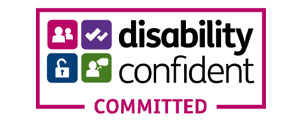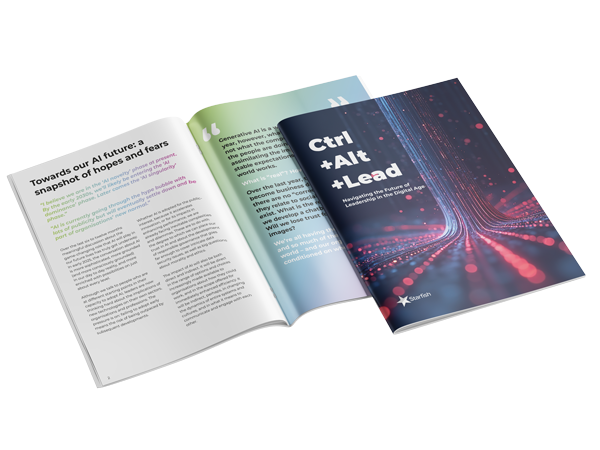Towards the future: why professional interim managers have a role to play in the post COVID-19 transition period
The crisis phase of the COVID-19 pandemic has continued to evolve at an unprecedented pace. But while those charged with leading and governing organisations – across all sectors – remain focused on steadying the ship, the last week marks a sizeable shift in thinking and attitude. In particular, the many leaders we have stayed in touch with during this period – wherever they are working – have now started to look ahead.
Few will tell you that they have the answers. Like most of us, they have been listening to an increasing number of influential voices, each busy painting a picture of what our lives may look like as we come out of the biggest global health crisis of our lifetimes. From these varied sources, we are all starting to shape our own view, and piece together our own emerging picture of what the future could hold post lockdown and, longer term, post coronavirus.
Even in such unprecedented times – and very likely precisely because of them – effective leadership depends on practical, real world solutions. For many organisations, continued uncertainty and ambiguity will delay long term commitments. However, the skills of interim managers – especially in handling change and transformation, and in sense-making from chaos – will make these professionals a fundamental part of the senior transition team.
Here are our top six observations on how best to source and utilise the best interim talent:
1.As we emerge from crisis management to business continuity, organisations are likely to find internal capacity is limited and look to appoint strategic advisors on a short-term basis, for example in areas such as workforce planning or financial modelling.
2.A recent YouGov poll commissioned by the RSA( https://flo.uri.sh/story/262445/embed#slide-0) showed that fewer than 10% of people want a complete return to normal after lockdown is lifted and organisations will already be thinking about their future delivery models and the impact on their workforce. Even though people feel confined by lockdown, most have valued the time at home and agile working. Digital capacity within organisations was mobilised at lightning speed and will likely go further. As organisations build capacity and seek investment in technologies to enable more remote working, we expect to see a spike in requirements for interims with experience of digital transformation and innovation.
3.Organisations will be starting to onboard employees virtually; this will continue and can be utilised for Interim hires. Interims have proven track records in their fields and can be relied upon to deliver on objectives set even in a virtual environment.
4.The future of some organisations is already uncertain. We are expecting to see more collaboration (including mergers) between similar organisations to survive; this puts added strain on stretched workforces. We work with many Interims who have specific talents around Mergers and Acquisitions, Restructuring, Organisational Design. Strategic intervention at this time could add significant value. You may not have the expertise internally and acting quickly will pay dividends. External interim leaders can make tough decisions without fear of fallout from the organisation.
5.The environment we are working in now is unchartered territory especially for CEOs – consider hiring Interim expertise at CEO level, Interim Managers can empower you to make the best strategic decisions for your organisation.
6. You may have gaps on your leadership team and a weakened infrastructure at this time means more work for the CEO – Interim Managers can help fill these gaps and give extra capacity to executive teams.
The interim market is strong. Outstanding experienced leaders can be accessed quickly and cost effectively by any organisation looking for remedial or specialist support. Like everyone else, people who have chosen to invest in an interim leadership career are keen to add value and expertise to organisations in these changing times. Many are uniquely equipped to join senior teams at short notice and provide essential support with their trademark resilience. As we move deeper into the stocktaking and transition phases of the COVID-19 response, we would encourage organisations to think laterally about the solutions they may need, and to consider the benefits that this community can offer.
Top Talent: Regeneration and Growth
The growth and infrastructure agenda remains central to the government’s mission, and local authorities across the country are key drivers.
Mastering the Chair and Chief Executive Partnership: Insights from Our Latest Webinar
We recently hosted the second session in our Aspiring Chief Executives webinar series, focusing on a crucial theme for any leader entering the charity sector: Mastering the Chair and Chief Partnership. The session, led by our own Louise Beales, Prinicpal Consultant, and special guest Ciara Eastell, an experienced charity CEO, Chair, and coach, both provided a wealth of practical advice for those stepping into executive roles, especially within non-profit and charitable organisations.
Mastering the Chair/CEO Partnership: Your First 100 Days and Beyond – A Starfish Search Webinar
Starfish is dedicated to supporting leaders at every stage of their journey and we know that one of the hardest steps is how to go about finding the right opportunity, and what to expect when you get your first chief executive role. We are pleased to be running a webinar for our new Aspiring Chief Executives programme.
ACCREDITATIONS


ESPO is a public sector owned professional buying organisation (PBO), specialising in providing a wide range of goods and services to the public sector for over 40 years. Starfish Search has been awarded a place on ESPO’s Strategic HR Services framework (3S). Services we offer under the framework include: Lot 1, Executive and Managerial Interim Recruitment Lot 2, Executive and Managerial Permanent Recruitment.


Starfish are proud to be certified Disability Confident Committed. This scheme provides employers with the knowledge, skills and confidence needed to attract, recruit, retain and develop disabled people in the workplace.


Crown Commercial Service supports the public sector to achieve maximum commercial value when procuring common goods and services. In 2020/21, CCS helped the public sector to achieve commercial benefits equal to £2.04bn - supporting world-class public services that offer best value for taxpayers. Starfish Search has been named as a supplier on Crown Commercial Service’s Executive and Non-Executive recruitment. Services we offer under the framework include: Lot 3 - Non-Executive and Public Appointments.


Bloom, launched in 2012 is the UK’s leading marketplace for professional services. They provide an end-to-end solution for the procurement, contract management and payment of all professional services, via the compliant NEPRO³ framework. Their public sector clients have access to 20 professional services categories and over 4500 accredited suppliers. Bloom provides swift routes to market via either direct award or mini competition. Starfish is an accredited supplier to BLOOM; our services can be accessed via this framework - Executive and Non-Executive Search and Interim Management.
Join the starfish team
We hire people who bring insight, integrity and ambition to their work. If you’re ready to contribute to shaping the future of leadership and you want to explore our current opportunities please get in touch.
